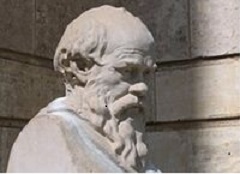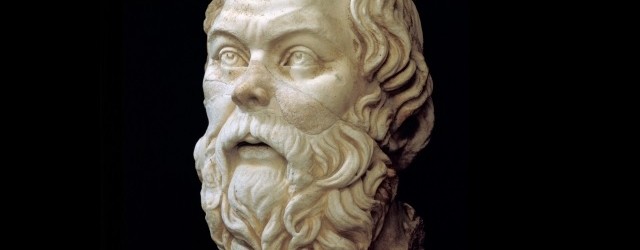Socrates said “the unreflected life is not worth living.” I have come across this quote a number of times lately, causing me to reflect further on the statement itself.
 This quote of Socrates was first presented to me many years ago by an affirming mentor when I was going through significant change in my internal world, questioning myself in so many ways: my beliefs, my actions and my position and purpose in the world. At the time, the statement helped to validate the reflective turmoil I was experiencing, and over time I have come to appreciate the great wisdom of Socrates.
This quote of Socrates was first presented to me many years ago by an affirming mentor when I was going through significant change in my internal world, questioning myself in so many ways: my beliefs, my actions and my position and purpose in the world. At the time, the statement helped to validate the reflective turmoil I was experiencing, and over time I have come to appreciate the great wisdom of Socrates.
What exactly is the wisdom embedded in this statement of Socrates?
According to the Oxford online dictionary, the word reflect means to ‘to think deeply or carefully.’ It is derived from the Latin reflectere, meaning ‘to bend back.‘ If we combine the meaning of reflect with its Latin derivative, there is the implication that the reflection to which Socrates refers, if our lives are to be worth living, is of one’s past (‘bend back’). Alternative translations of Socrates’ statement substitute “unexamined” for “unreflected,” further implying the need to look deeply at one’s past life, as it is not possible to examine a path that we have not yet trodden.
In a converse fashion however, much of our attention in our daily living is focused on how well our lives are on track for achieving our goals, and the various pathways that exist for moving forward. For the most part, we are outcomes-focused and outcomes-driven people. We deliberate over our options for the future. Sure, we may share stories of past experiences with others in a social context, or we may brood over an event by playing it over and over in our minds, but in these contexts there is probably little reflection or examination of ourselves and our lives. We have learnt that it is best to move on and focus ahead and move away from a place of brooding; we get on with it!
It seems that there is quite a gap between the enlightenment of Socrates and our current practice of focus in our lives.
What then would be the benefit of looking backwards and examining our lives, as opposed to focusing our attention ahead and looking forward?
Obviously we cannot change the past. It has already happened and our past events will always remain the same. Our lives move forward, not backward, so surely it makes sense that our focus and our deepest thinking about our lives should be projected to moving ahead.
However, if we never look back and examine our lives, we will never develop new insights about ourselves and others. We will hold the same thoughts, views and beliefs that have shaped our lives thus far. Without reflection of our past, we will never change the way we view or feel about our previous experiences. Moving forward in this way simply puts our same selves into a new context. Without reflection on the past, there is no change of heart and there is little self-growth. Years later we will still hold our earlier experiences in the same way as we held them when we were many years younger. Our emotional responses to certain triggers are most likely the same; for example, we may feel resentment, anger or hurt when facing particular people or events in our lives in a similar manner to the way in which we have always responded. Without deep reflection on the past and the processing of difficult events and emotions, it is unlikely that any of our core features and core beliefs will change. Apart from the external factors associated with a new context requiring us to relate accordingly, without deep reflection on our past, we remain essentially the same.
The wisdom of Socrates is certainly blatant. He suggests that our lives are not worth living if we do not examine ourselves and the paths we have travelled thus far, as there is no capacity for self-growth. Rather, self-growth will occur if we accept the challenge to reflect deeply on our lives before we focus on where we are going.
Note: For many people, the thought of reflecting deeply on the past and unearthing past events may seem alarming, in which case it is advisable to seek the support of a mentor or counsellor.
If you would like to keep up to date with Margaret’s articles and blogs, click HERE and enter your email address in the Subscribe section on the page, and click on the Go button. You will receive an email to confirm your subscription and you will need to click on the link in the email you receive.

Speak Your Mind